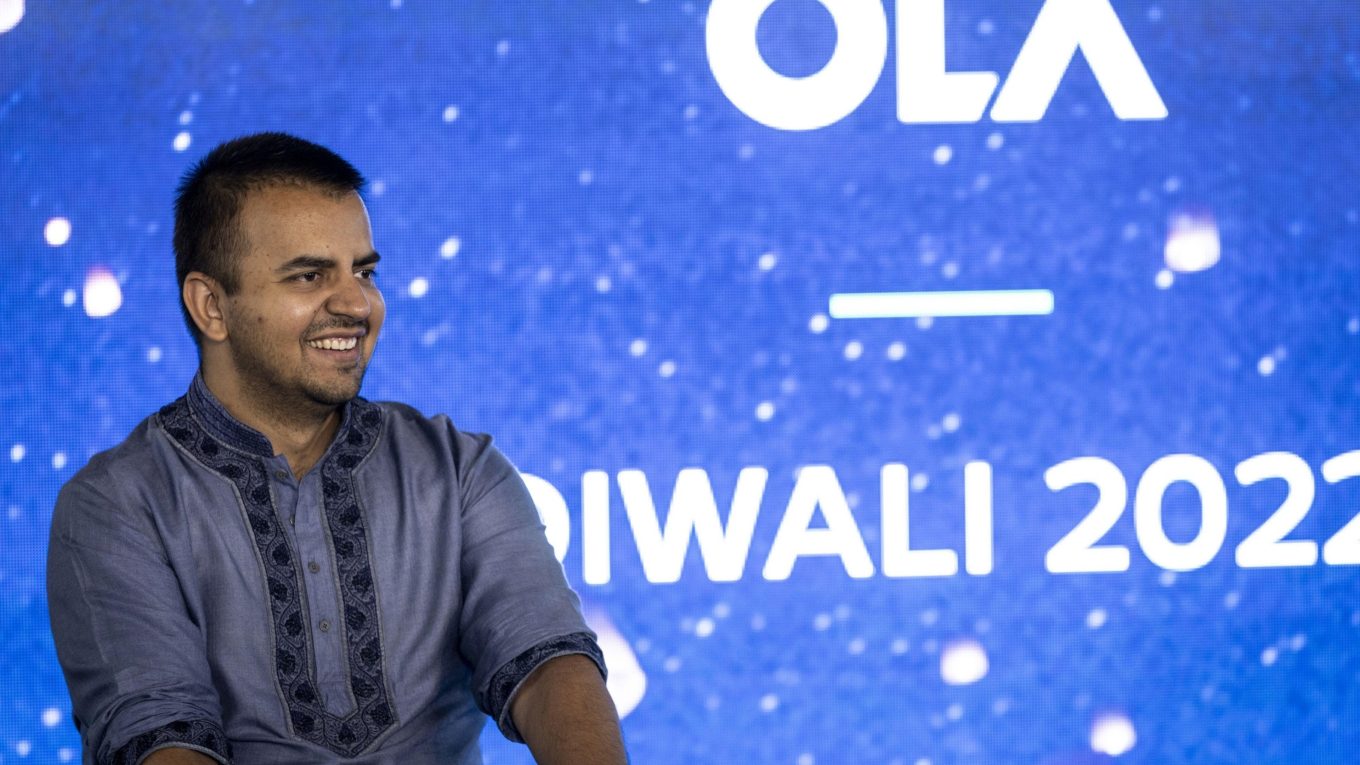Ola Electric founder Bhavish advances plan for IPO as e-scooters take off
Written by Ragini Saxena and Digit Chakraborty
Soldier First Electric Mobility. goes with Initial public offering sooner than its founder had previously imagined, reflecting the Indian startup’s rapid growth pace since it began selling electric scooters in late 2021.
“I thought it would take four to six years for the proceeds to go public,” founder and CEO Bhavesh Agarwal said in an interview over an iced Vietnamese coffee in New Delhi’s bustling Connaught Place. “Now I can feel that it will be much earlier. Ola Electric has grown and matured faster than I originally planned because the market response has been so strong.”
The company, whose backers include SoftBank Group Corp. and Tiger Global Management, the electric scooter market leader in India with a share of 38%. It has sold more than 239,000 electric scooters since December 2021, according to EVMA data.
While the demand initially came from first-time scooter buyers, now most of Ola Electric’s customers are already full-fledged converts, said Aggarwal, 37, wearing a black Nehru jacket made famous by India’s first and later Prime Minister Jawaharlal Nehru. , the Beatles.
branch out
Aggarwal has ambitions to expand, with plans to unveil a motorcycle by the end of this year and a battery-powered car in 2024, though timelines could change. He also continues to consider exporting the scooters to Southeast Asia, Latin America and Europe, a proposal that was shelved because demand at home was too strong, according to Agarwal, who runs her first company, ANI Technologies Pvt. Ola operations.
Bloomberg News reported in August 2021 that Ola Cabs had reached the point of picking banks for a $1 billion Mumbai IPO, but that never materialised. Aggarwal said in an interview last week in Delhi that the company, which competes with Uber Technologies Inc. , is “a profitable business for us now”. He did not comment on any new listing attempts, nor did he give a date for a possible Ola Electric IPO.
Aggarwal is building a 115-acre battery factory in southern India, pitting him against billionaire Mukesh Ambani’s Reliance Industries Ltd. , with the aim of making lithium-ion cells mainly for Ola Electric cars, as well as potentially providing energy storage and home energy solutions. .
Aggarwal, who graduated from the Indian Institute of Technology, Mumbai, said that manufacturing EV components in-house will help Ola Electric sell cars more widely and increase margins. He said designing the vehicles from scratch would give the company more control over quality and costs in a market where most electric vehicles are being converted from petrol models.
Achieving success with electric vehicles will not be easy. Combustion engine vehicles remain the preferred mode of personal transportation in India and dominate the country’s roads. Electric vehicles have been hampered by the country’s lack of charging facilities and their high prices. Nationwide sales came in at 49,800 last year, just 1.3% of the 3.8 million passenger vehicles sold, according to BloombergNEF.
Bumps in the road
Ola Electric’s scooter business has also been affected by delivery delays due to chip shortages, quality issues, and fire. Sales fell 39% in June from the previous month to 17,590 units, a trend that affected other automakers as well after the government scaled back subsidies offered under a faster certification and manufacturing program for vehicles (hybrid and electric).
However, better technology has shortened the timelines for bringing the product to market, according to Agarwal. Ola Electric uses digital simulation and artificial intelligence in manufacturing to save you time. “I am building a technology-focused group of companies,” he said. The other big technology topic of our generation will be computing and artificial intelligence. So we’ll do something.”
Being a so-called flat organization also speeds up the production process, said Agarwal, who is involved in day-to-day decision-making in his company, which employs about 7,000 people.
He said, “What may take a month in the company, we accomplish in a single day.” “Our implementation philosophy is that we want to do things as well as possible without any compromises on quality or safety. And we do it at the lowest possible cost and as quickly as possible.
Aggarwal believes his strategy to control the different stages of the EV supply chain will reduce costs and improve product performance and design.
He said: “Tesla is for the West, Ula is for the rest.”
